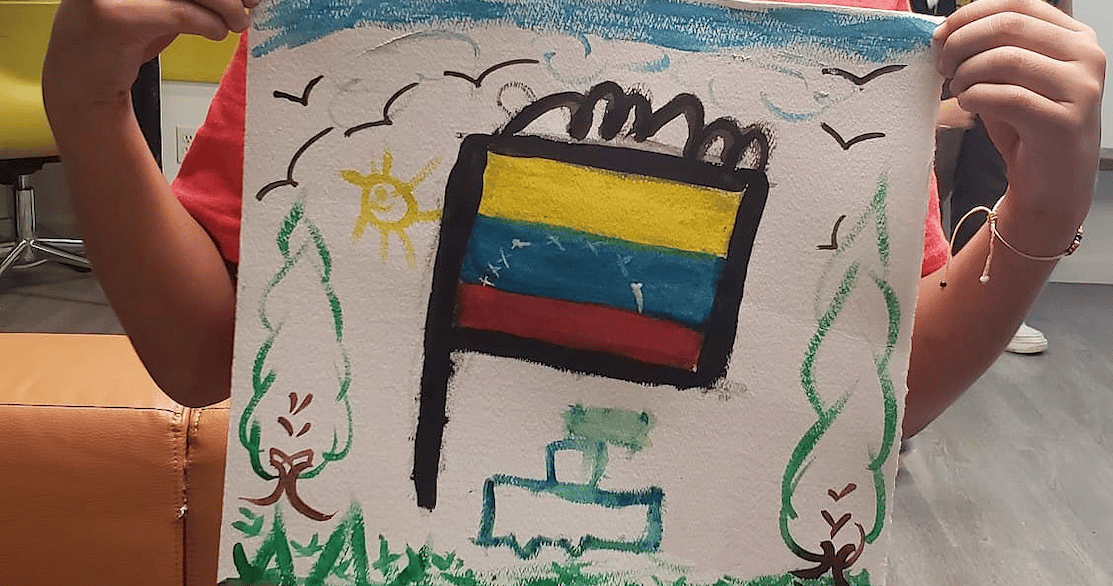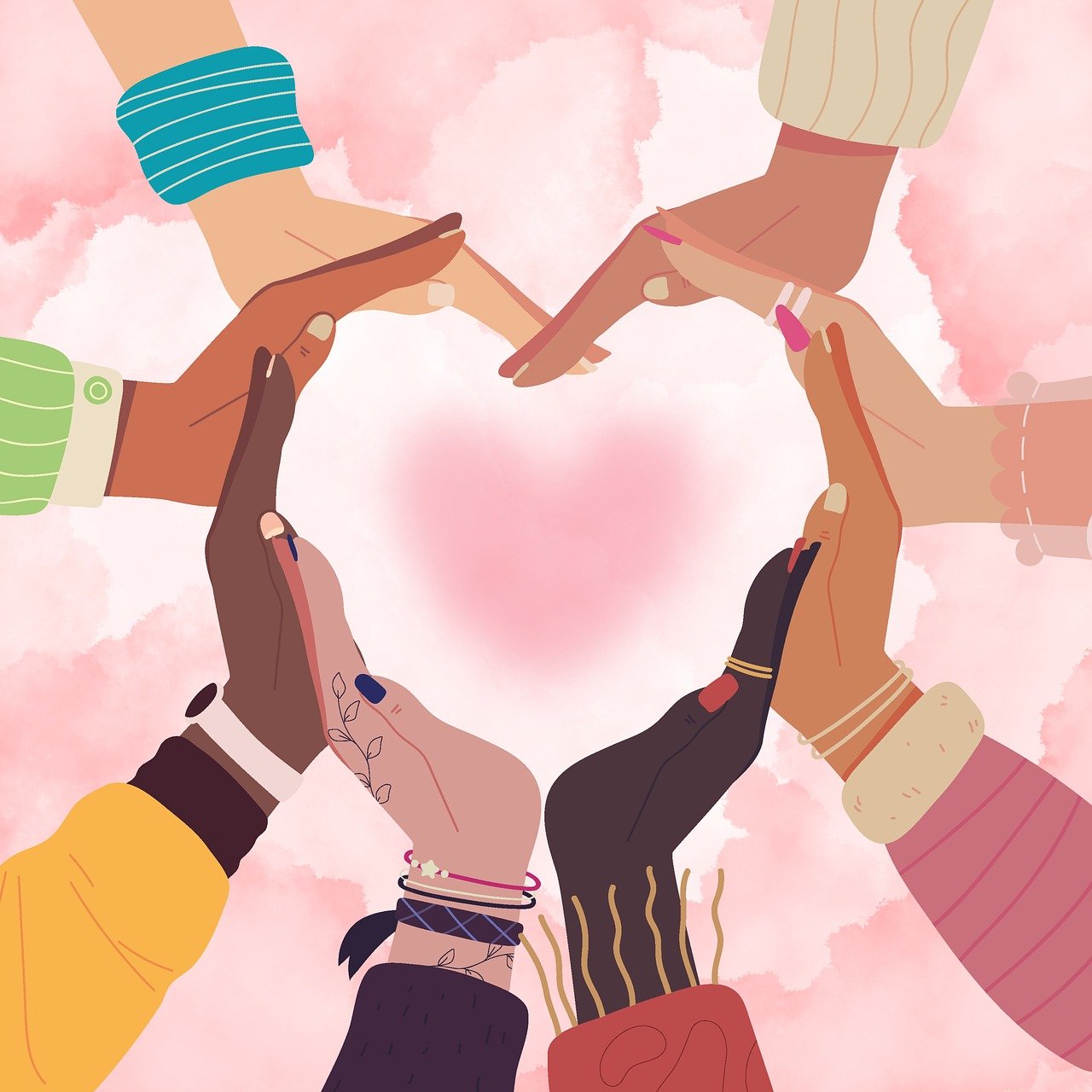Eating disorders by Nick Youngson. Creative Commons License BY-SA 3.0 Courtesy Pix4free
“If I got hungry, I would drink a whole lot of water till I was full,” said Keidy. Her belief that her weight determined her value as a person sent her on a path toward a life-threatening eating disorder. When she was eighteen and in her last year of high school, the Lehman College freshman starved herself to look good. She asked us not to use her full name, but she recalled her experience. “I thought that maybe if I was skinny [this person] I ‘liked’ would think I’m cute,” she said. At the time Keidy didn’t know it, but she was suffering from anorexia nervosa, the eating disorder that almost killed her.
Researchers discovered that the COVID pandemic impacted the mental health of young people and that eating disorders were surging in teens and young adults. Since the start of the pandemic in 2021, Trilliant Health, a data research company, found that anorexia cases among teens and young adults “have been increasing at a faster rate than all other eating disorders for both children and adolescents (ages 0-17) and adults (ages 18+).” Similarly, on a forum of SingleCare, an online site that helps find prescription medications at the lowest cost, statistics indicate that adolescent eating disorder cases have increased from 3% to over 7% in 2024. Seventeen to eighteen-year-olds seem to have the highest incidence of anorexia, where they starve themselves, or bulimia, where they purge or vomit what they eat.
Doctor Suzanne Straebler, the clinical director of the Center for Eating Disorders at New York Presbyterian Weill Cornell, said in an interview, “We’re seeing eating disorders far younger…we now have 7-year-olds in the clinic.” Dr. Straebler also believes that the pandemic played a crucial role in the development of eating disorders among young people. She pointed out that after quarantines disrupted normal social, educational, and work life, people turned to overeating, or not eating, as a coping mechanism to soothe and have a sense of control. Social media, she pointed out, is a huge factor when it highlights idealized body and facial types. Increasingly, it is aimed at boys and men. “I’ve seen so much content targeting young boys and males about having a particular jawline, having a particular body fat composition,” Dr. Straebler said.
I know this firsthand because I thought starving myself was the way to get the “ideal” body weight. My therapist and other researchers say there is no perfect body mass, “There is no ideal weight nor eating pattern,” she told me. She works at the New York Presbyterian Medical Center Clinic and asked me not to use her name. But she said the idea of conforming to a certain weight can influence the way a person views their appearance even if it’s not right for them.
Dr. Straebler agrees, saying that she has an intense dislike for the term ‘normal’ when looking at a body mass index or BMI, which calculates your body fat. She said, “Most individuals with an eating disorder in larger bodies aren’t in this ‘normal,’ and I hate that term… There’s a really big misconception that if you are someone in a larger body, you couldn’t possibly have an eating disorder.”
I had a large body. At 19 I weighed over 200 pounds. I looked online and matched my height with a so-called expert’s notion of the ideal weight. The information told me I was obese and that depressed me. That’s when I stopped eating for a couple of days. Maybe on the third day, I would have a cracker and if I was still hungry I would go to sleep instead of eating dinner.
I had no idea that I was slowly spiraling into an eating disorder that would eventually alter how I saw myself and how others saw me. I was reluctant to eat more until I had reached my “ideal” weight, even though my mother told me that I looked like a head on a stick.
One week I went almost three days without eating anything, and when I decided to finally eat something I felt dizzy and could not keep my balance. I had to sit down and recuperate in my living room, afraid my negligence would disturb my family’s sleeping. I could only assume it was a final warning from my body. That was a wake-up call for me, a sign to stop what I was doing.
When I went for a check-up with my primary physician, they did a scan of my heart and noticed that I had an irregular heartbeat. The doctor sent me to the Montefiore Medical Center Emergency Room in the Bronx. Nurses sat me down in a hallway because the E.R. was overcrowded. They examined me and found I had a heart rate of 49 bpm, just below the threshold of what doctors considered a normal heart rate for a young adult like me. The nurses at the hospital gave me an ultimatum: I could spend my time in the emergency room constantly being monitored to make sure I was eating, and then, if I was admitted to the hospital I could not see my family until doctors thought that I was fit to be released. Or I could return home and change my eating habits immediately. They also suggested that I join programs and get treatment to recover from my eating disorder.
I decided to go home and change. Six months later, I am still in treatment and undergoing recovery with the help of my therapist, who inspired me to write this article.
What happened to me is similar to what happens to others and what happened to Keidy, the freshman from Lehman. My psychiatrist said anorexics who don’t eat become malnourished. Their body begins to slow down because they don’t have enough energy flowing through their bodies. Their heart rate slows, their stomach shrinks and they suffer from mood swings and they can suddenly faint, which is what almost happened to me.
Keidy and I shared our stories and our belief in therapy because, she said. “Eating disorders come from something deeper. People should look at their mental health because it might be what’s affecting them and their eating habits.” Her change in diet went unnoticed but she recalls that her mother “noticed that I was super skinny, but she just thought it was natural.”
Keidy said that her belief in God reassured her that He always has a plan. When she had an accident, she saw it as a sign: “Me breaking my leg helped me recover from my eating disorder and it helped me a lot with my depression because I saw how much everyone cared about me.”
People in therapy like me know that eating disorders are forms of severe mental illnesses that call for sympathy, comprehension, and assistance. We have the power to significantly impact the lives of young people dealing with these disorders by increasing awareness, pushing for reform, and aiding those in need.
Dr. Straebler’s clinic offers family-based therapy and cognitive behavioral therapy. Dr. Straebler explains that family-based therapy centers around the adult taking control over feeding their child, while cognitive behavioral therapy is “an individual therapy where you’re working on normalizing an eating pattern, helping someone to achieve a weight that is ideal for their body… and helping to prevent any eating disorder-related symptoms or behaviors: food restriction, delayed eating, laxative misuse, self-induced vomiting.” She continues to emphasize the fact that, “All bodies are different.”
However, Dr. Straebler does want to point out that these programs aren’t necessarily widely available. She is working on developing a digital Cognitive Behavioral Treatment (CBT) app where someone does not need to go through an evaluation or even come into the clinic to receive the therapy they need. Dr. Straebler hopes that this will encourage people who resist visiting a clinic because they might be ashamed of their disorders to speak up about them regardless.
.There is support available and the National Eating Disorders Association (NEDA) Helpline serves as a vital resource. The NEDA Helpline is open to people of all ages, genders, and backgrounds, and provides private, confidential support and advice for those struggling with eating disorders. National Eating Disorders Association (NEDA) or call the Helpline: 800-931-2237
Tags: anorexia BMI Body Mass Index bulimia. eating disorders Center for Eating Disorders at New York Presbyterian Weill Cornell Dr. Suzanne Straebler Kenneth Morales Mental Health National Eating Disorders Association NEDA New York Presbyterian Medical Center Clinic Single Care Trilliant Health young adults eating disorders






